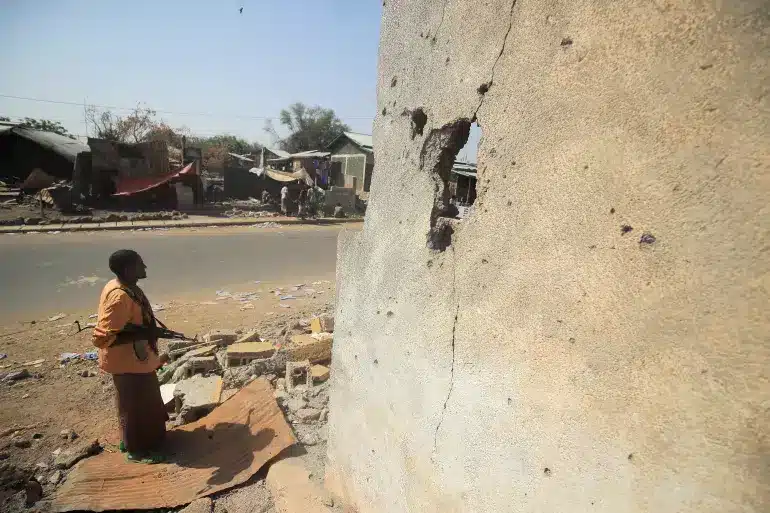The army says, forces from Ethiopia’s Amhara region that fought in support of federal troops during the two-year civil war in neighbouring Tigray have left in accordance with a ceasefire backed by the African Union.
In a statement released late on Thursday, the Ethiopian National Defence Force stated that “the Amhara regional special force, which was in a national mission alongside the ENDF, has withdrawn from the area, as per the deal.”
The withdrawal is an important step in carrying out the agreement reached on November 2. The disarmament of Tigrayan forces, who started handing over their heavy weapons on Wednesday, is another crucial element.
The agreement was signed by Ethiopia’s federal government and the Tigray People’s Liberation Front, a party that dominates the region.
The conflict broke out in November 2020 over disagreements between the federal government in Addis Ababa and Tigrayan authorities. It has created famine-like conditions for hundreds of thousands of people and killed tens of thousands.
According to the United Nations, the war has displaced more than two million Ethiopians and left more than 13.6 million people in the north dependent on humanitarian aid.
The restoration of basic services in Tigray, resumption of humanitarian aid and withdrawal of troops from neighbouring Eritrea, who fought alongside Ethiopia’s army, are central to the deal.
Eritrean soldiers began to pull out of several important towns in Tigray late last month. However, they have not left those towns entirely, residents say, and it is not clear whether they intend to leave.
Eritrea, which was not a party to the truce, has declined to comment on whether its troops will leave Tigray.
Tigrayan rebels this week began handing in their heavy weapons in the town of Agulae, about 30 kilometers (18 miles) northeast of the regional capital Mekelle, in a move overseen by a monitoring team made up of members of the two sides and a regional body, the Intergovernmental Authority on Development.
Besides disarming rebel forces, the terms of the agreement also include restoring federal authority in Tigray and reopening access and communications to the region, which has been cut off since mid-2021.

